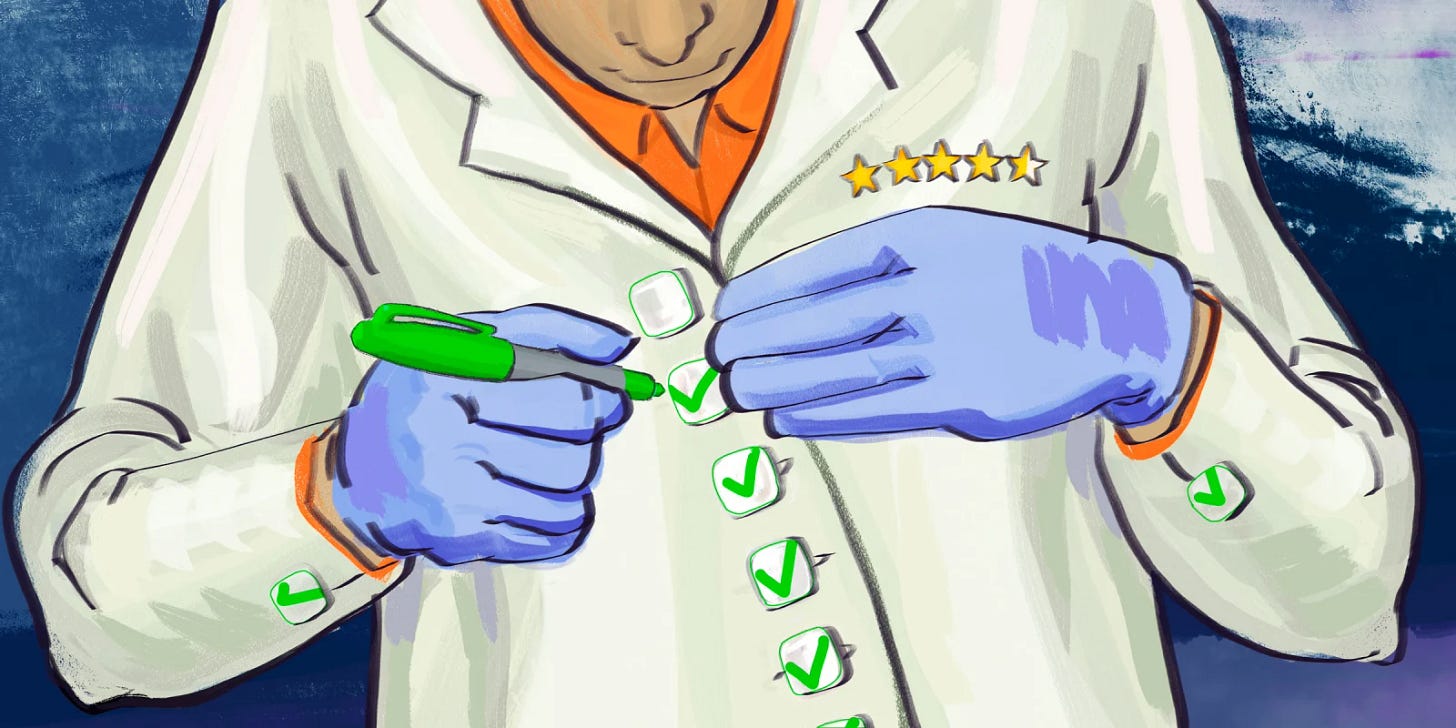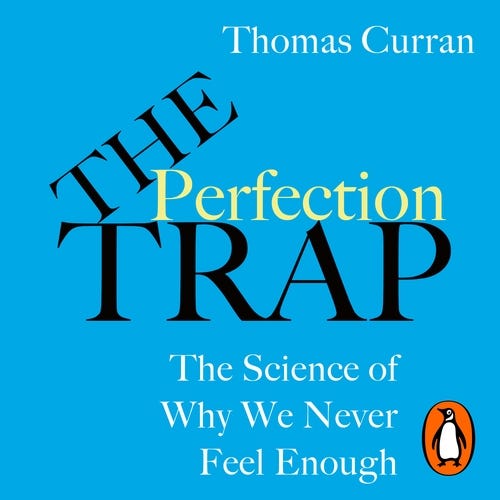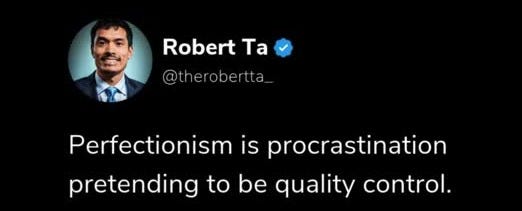Perfectionism vs. Progress
How I Let Go of My Inner Critic
I used to wear the “perfectionist” label like a badge of honor—proof that I was meticulous, hardworking, and held myself to high standards. And for a while, it worked. However, that same perfectionism started doing more harm than good in college.
For the first time, I faced challenges I couldn’t brute-force my way through. My test scores dropped, and every missed point was a personal failure. Instead of adapting to the tougher grading scale, I blamed myself, convinced I wasn’t working hard enough. That mindset didn’t help my grades—or my confidence.
I became so anxious before exams that I’d over-study, obsessing over every detail. But afterward, I’d avoid checking my scores for days, terrified of anything less than perfect. Surrounded by competitive peers, I thought falling even slightly behind would ruin my chances of getting into medical school.
Spoiler alert: I was wrong.
Yes, there are general boxes to check for med school, but how do you check them? That’s up to you. You don’t have to follow the exact path of the person next to you. Looking back, I wish I had leaned on my advisors more instead of trying to figure everything out alone. But between COVID, college chaos, and my stubbornness, I understand why I didn’t.
Realizing that perfectionism was holding me back was just the start. Unlearning it? That’s been a longer journey. But over time, I’ve learned that progress matters more than perfection—and that’s something worth striving for.
The Trap of Perfectionism
Defining Perfectionism
Perfectionism is the tendency to set excessively high standards for oneself and to strive for flawlessness, often accompanied by overly critical self-evaluations and concerns about how others perceive one’s performance.
Psychologists often distinguish between adaptive (or healthy) perfectionism, which involves high standards but flexibility, and maladaptive (or unhealthy) perfectionism, which leads to anxiety, procrastination, and self-doubt.
The High Achiever’s Dilemma
Medicine attracts high-achieving individuals who are used to excelling academically and professionally. Many premeds, scribes, and healthcare workers have spent years pushing themselves to the limit, making perfectionism feel like a necessary trait rather than a burden.
While striving for excellence is necessary in medicine, perfectionism can become harmful when it leads to burnout, self-doubt, or fear of making even minor mistakes. The key is finding a balance between high standards and self-compassion.
The Cost of Perfectionism
Perfectionism can show up in daily life in subtle and obvious ways, often affecting productivity, mental well-being, and relationships.
In Academics & Work
Procrastination – Putting off tasks because you're afraid they won’t be "perfect."
Overworking – Spending excessive time on assignments or projects, editing endlessly.
Fear of Feedback – Avoiding criticism or feeling personally attacked by constructive feedback.
All-or-Nothing Thinking – Believing that if it’s not perfect, it’s a failure (e.g., getting a 90% and feeling like you failed).
In Personal Life & Relationships
Setting Unrealistic Expectations – Holding yourself (or others) to impossibly high standards.
Avoiding New Experiences – Not trying new things unless you’re sure you’ll excel.
Seeking External Validation – Needing constant reassurance that you’re doing "well enough."
In Mental & Emotional Well-Being
Self-Criticism – Constantly feeling "not good enough" despite accomplishments.
Fear of Failure – Avoiding challenges to prevent the possibility of failing.
Anxiety & Burnout – Feeling overwhelmed from the pressure to perform flawlessly.
Other Experiences with Perfectionism
To offer another perspective, Anesthesiologist Dr. Michelle Au, in her book, This Won’t Hurt a Bit, shares her struggles with imposter syndrome, perfectionism, and the intense pressure to always perform flawlessly in a high-stakes environment. She reflects on the moments of doubt, exhaustion, and frustration that come with medical training but also on the moments of growth, resilience, and fulfillment that make it all worthwhile.
She shares an anecdote from residency when she was tasked with performing an emergency intubation on a critically ill patient.
As a young anesthesiology resident, she knows the procedure is high-stakes. If done incorrectly, it could have severe consequences. The pressure is immense, and she hesitates for a moment, doubting her own ability despite her extensive training. She describes the feeling of being watched by senior physicians and the fear of making a mistake in front of them.
When she finally performs the intubation, it doesn’t go perfectly on the first attempt, and she immediately starts berating herself internally, feeling like she has failed. However, with guidance and a second attempt, she successfully completed the procedure. This moment forces her to confront the reality that medicine isn’t about perfection; it’s about learning, adapting, and doing the best for the patient, even when things don’t go smoothly.
How Letting Go of Perfectionism Changed My Life
Once I started embracing progress over perfection, I became a much calmer person. Roadblocks, minor inconveniences, and even my own mistakes no longer frazzled me the way they used to. Instead of spiraling over an error, like a mistake in a medical chart, I began to see it as part of the learning process. If no one had pointed it out, I might have continued doing it wrong for weeks or months. Now, I recognize that feedback, even when it’s not delivered most graciously, isn’t something to fear or feel ashamed of—it’s an opportunity to grow.
What truly matters isn’t whether I make a mistake but how I respond to it. Knowing that I can give myself grace in those moments has made all the difference. Whether in the classroom or the hospital, I no longer let the fear of imperfection hold me back. When you embrace this mindset shift, you walk into high-pressure environments with a sense of lightness. You take on challenges with courage rather than hesitation.
It changes everything.








